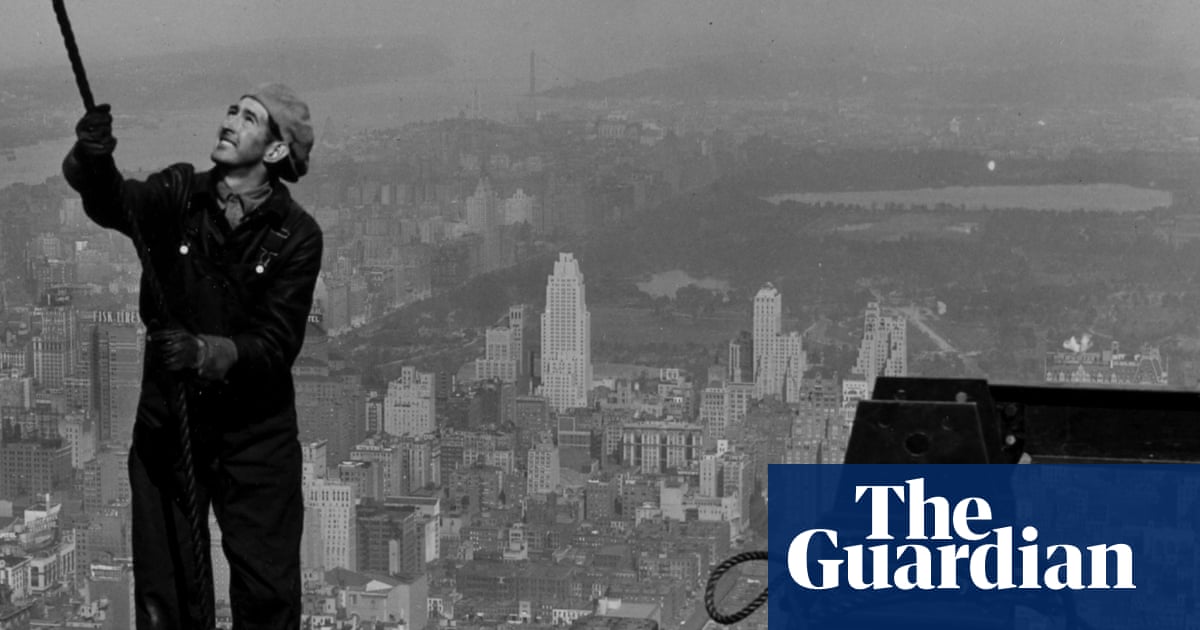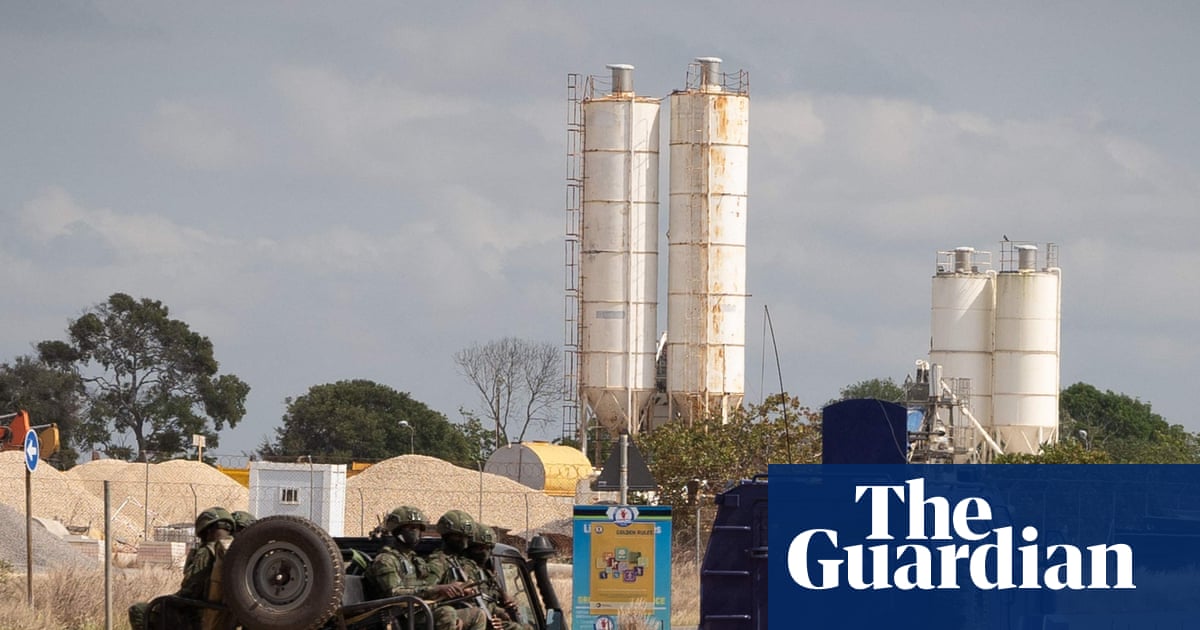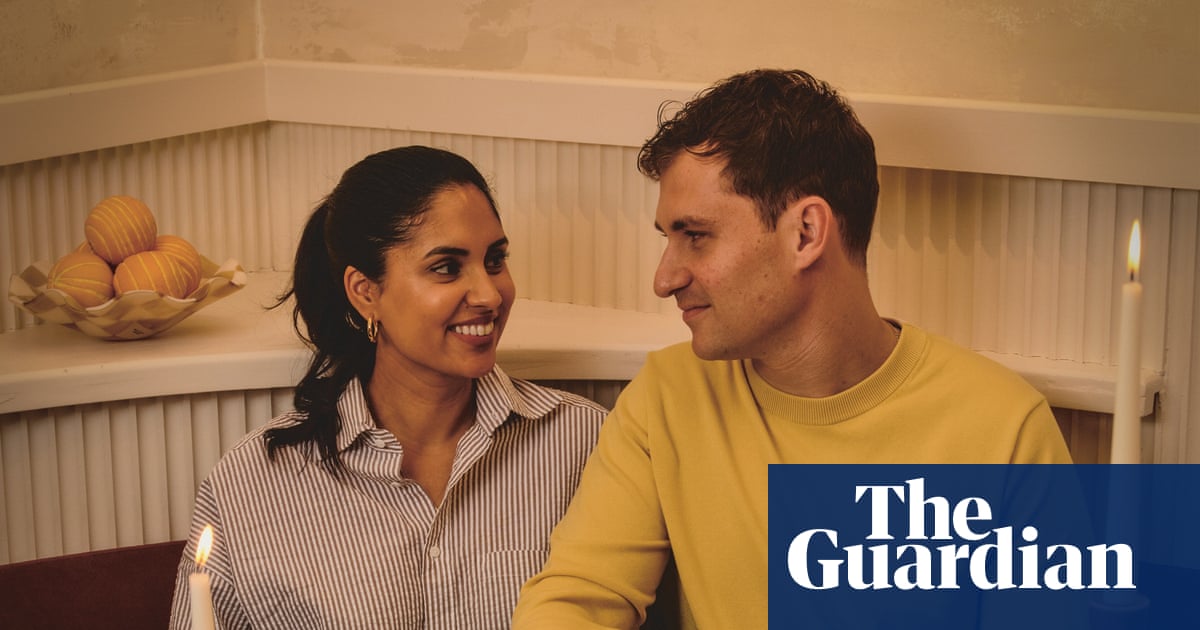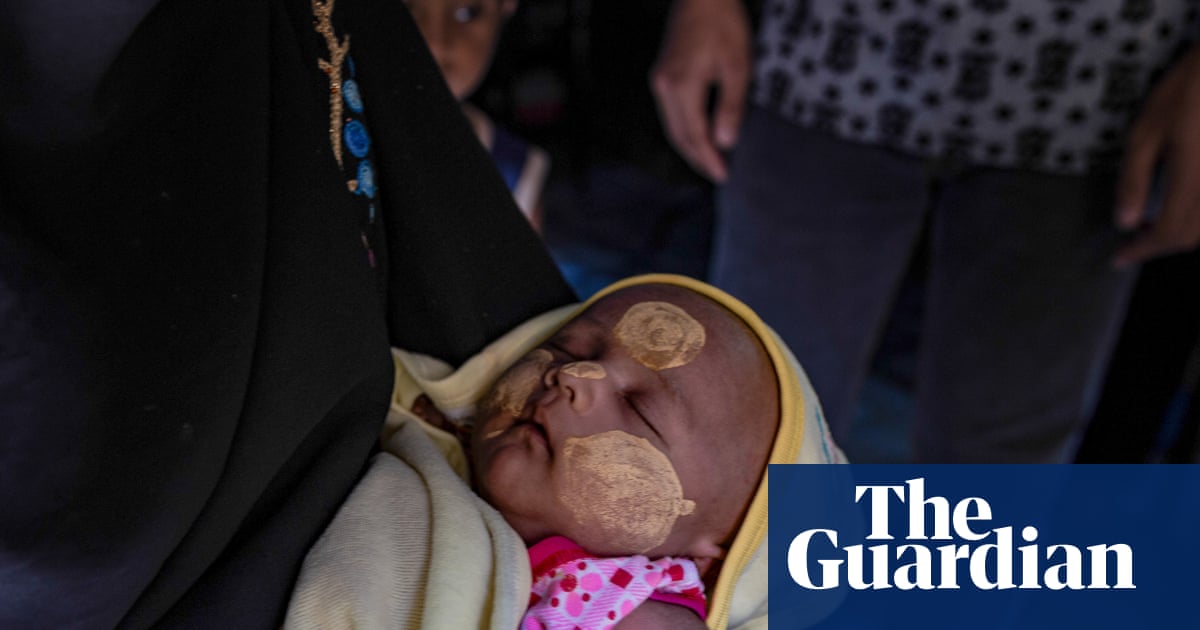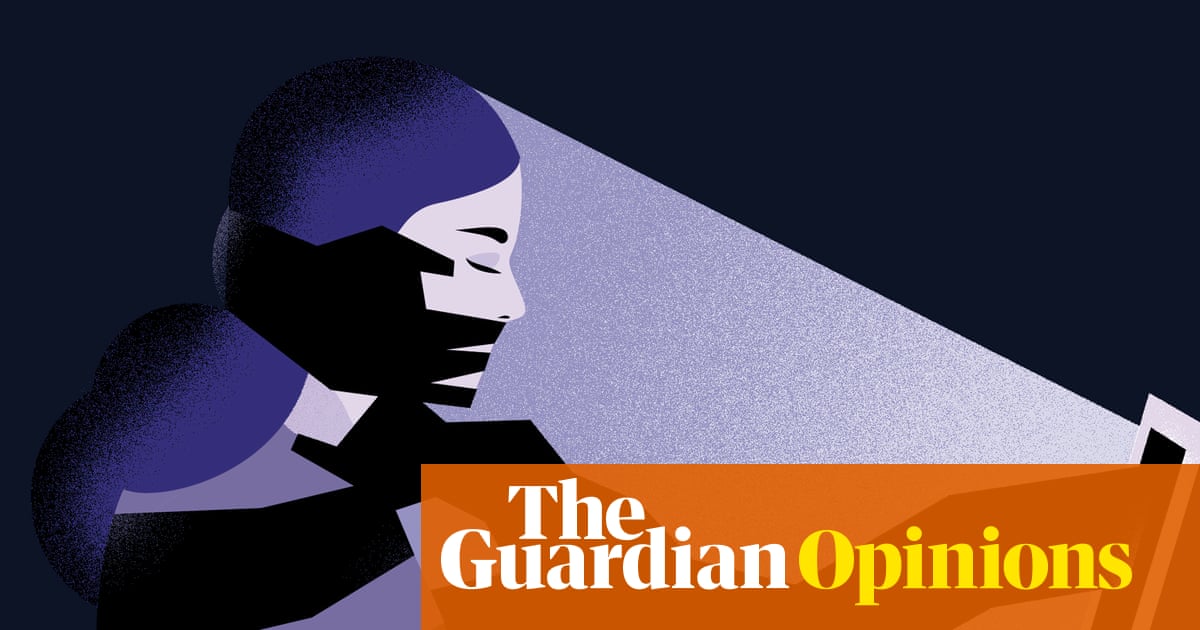It was a deadly moment that unfortunately came as no surprise. At about 3am the unmistakable crump of explosions could be heard across Kyiv, enough to wake up tens of thousands and leave them contemplating whether to head for shelter or to stay in bed hoping for the best.
At a five-storey residential apartment block in the Darnytskyi area in the east of the city, residents said they had heard Russian bombing in the distance. It was a familiar sound, and many had gathered away from the windows in central corridors that extended along the block, only for disaster to strike.
“We didn’t understand what had happened,” said Oleksandr Yastremskyi, who had taken refuge in a corridor with his wife, Tetiana, and their son Denys. “It’s like something had landed into our house. And then we heard people screaming.” A hundred metres away, the other end of their building collapsed, sending, according to Tetiana, “a big wave of dust and smoke” in their direction.
The next day, shocked residents described how two explosions destroyed one end of the apartment block, killing 17. Ivan Zhelezko, a serving soldier, looked across at his bombed second-floor flat, its balcony hanging at an unsustainable angle. Around him in bags were a handful of possessions he had managed to take with him from the apartment where he lived with his family for 20 years.
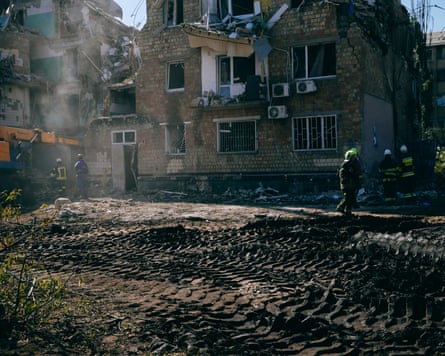
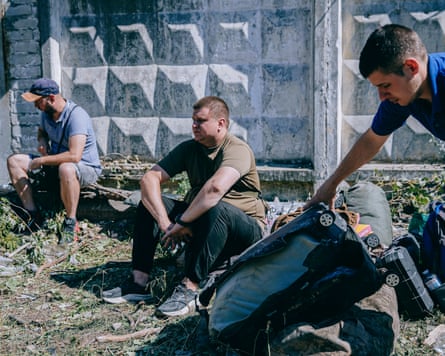
Zhelezko said he was too stunned to be angry, describing himself as confused. Among those who died, he said, were his friend’s sister and the parents of a childhood friend. The soldier explained that his family escaped because they left immediately after the first explosion, and he tried to insist the tragedy was “nothing new for me”. Such fatalism was hard to believe, though he added: “I’m just happy my family is alive.”
Those who moved fast or were simply at the other end of the building may have been able to escape unhurt but, such was the ferocity of the blasts, taking down all five storeys, they could only have been caused by a cruise or ballistic missile attack, giving those in the path of the rockets no chance.
At the scene of the bombing, Yulia Maystruk clutched her three-and-a-half-month-old baby daughter, Maria. She explained that that she knew “a woman who had taken shelter in the basement with her 14-year-old-son” nearer the impact point. The mother had survived but was injured, needing medical care. As for the son “he died in hospital”, she said, her eyes welling with tears.
The 14-year-old was one of four children out of 17 civilians who were killed in the apartment block because they had the misfortune to be at the wrong end of the building. Ten other people remained unaccounted for and a search operation involving 200 rescue workers, gradually tearing down the ruined part of the building as they looked for survivors, was expected to continue into Friday.
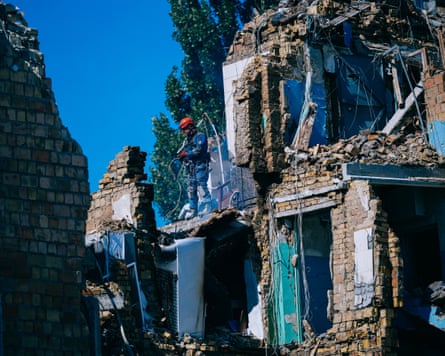

It had been quiet in Kyiv throughout most of August. In the run-up to the failed Alaska peace summit, Donald Trump had complained about Vladimir Putin’s bombing of Ukrainian cities and even threatened to levy sanctions on Russia oil before the meeting. The threats appeared to have some effect on the Kremlin and major attacks on Ukraine’s urban centres halted. Quiet nights returned.
However, in Alaska Putin had refused to agree to a ceasefire unless Ukraine agreed to his extreme demands, including the surrender of the heavily defended portion of the eastern Donetsk province it still holds. Trump proved unwilling to pressure the Kremlin into softening its position – and so it was only a matter of time before Russia would feel confident enough to strike Kyiv again and see how the US president reacted.
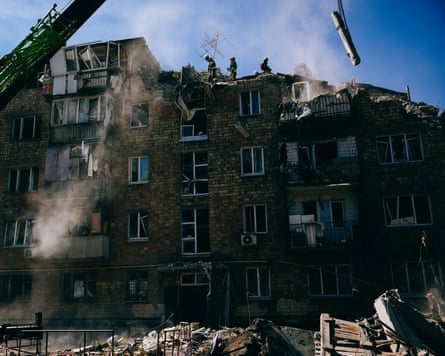
In the small hours of Thursday, it was clear the Kremlin was going all out. Ukraine’s air force said the country had been targeted with 629 Russian missiles and drones overnight. It was the worst attack on Kyiv since 31 July when 32 people were killed. Emergency services responded in more than 23 locations and at least 18 people have been killed.
Just before 5.40am the bombing switched to the city centre, a mile south-east of Kyiv’s main railway station, into an affluent district of business properties and expensive apartments. A drone or missile struck close to an apartment building across the road from the five-storey British Council offices; the ensuing blast shattered all its front windows, bringing down its ceilings and inflicted serious damage.
Residents in the district headed out to the dusty, glass-strewn streets, according to one observer, many wearing pyjamas and slippers, wrapped in blankets to call family members to describe what has happening. There was no obvious nearby target for the attack and the damage to the British Council building means that a diplomatic row between the UK and Russia is now inevitable.
Back across the city, Maystruk acknowledged: “I didn’t think this would happen to me,” and worried for the future of the baby she held tight. A cousin, she explained, lived on the outskirts of London. Perhaps she could move there for her family’s safety? She rejected the suggestion: “Our patriotism is more powerful than our fear.”
Additional reporting: Artem Lysak

 3 months ago
39
3 months ago
39
